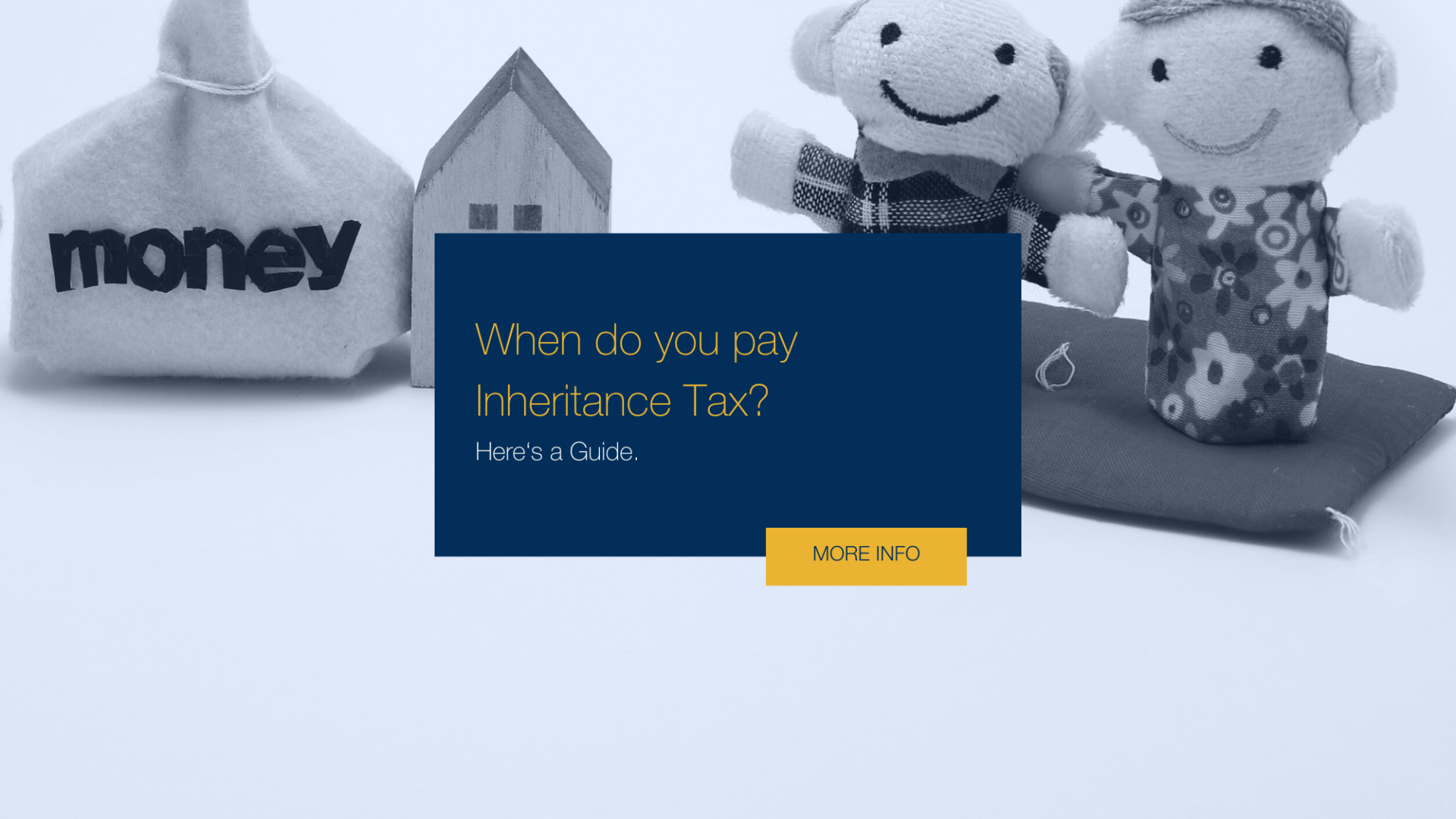Inheritance Tax
 By Shaun Adams
Subscribe to newsletter
By Shaun Adams
Subscribe to newsletterWhen do you pay Inheritance Tax?
Everyone in the 2016-17 tax year has a tax-free inheritance tax allowance of £325,000. The allowance has remained the same since 2010-11, and will stay frozen until at least 2019.
After you die, the people tidying up your affairs have to count up the value of what you leave behind – your estate – and take off any debts and funeral expenses. Depending on how much is left, there might be Inheritance Tax to pay.
What is the Inheritance Tax threshold?
For people who are married, in a civil partnership or widowed, the threshold for Inheritance Tax is currently £650,000 between them. For single people, the Inheritance Tax threshold is currently £325,000 per person.
Who pays Inheritance Tax?
If you're single or the first person to die in a marriage or civil partnership
If you're single and your estate is valued at below £325,000, then there's no Inheritance Tax to pay. If it goes over the £325,000 limit, then Inheritance Tax has to be paid at 40% of the extra value only.
Remember
It's worth checking the value of your estate every year or so – things like property and investments can change value fast and the value of your estate could move above the Inheritance Tax threshold without you noticing.
For example, if your estate is valued at £425,000, then £40,000 would be due in Inheritance Tax – because the 40% rate is only charged on the extra £100,000.
If you're the first person to die in a marriage or civil partnership and you leave everything you own to your husband/wife or civil partner, there will be no Inheritance Tax to pay, whatever the value of your estate.
If you're the first person to die in a marriage or civil partnership, and you do not leave everything you own to your husband/wife or civil partner, then whether there's Inheritance Tax to pay on your estate will depend on both:
- the value of your estate, and
- who else you leave your estate to
If you're a widow, widower or surviving civil partner
If your spouse or civil partner leaves all their estate to you, they also pass on their £325,000 Inheritance Tax allowance. You can add this to your own allowance, meaning that your own estate may only have to pay Inheritance Tax if it's worth over £650,000. If that happens, you'll pay 40% on the extra value only. The example below shows what might happen.
If your husband dies and leaves you his entire estate valued at £500,000, no Inheritance Tax will be due – because spouses and civil partners don't pay inheritance tax on money and/or property they leave to each other.
But if you also have £300,000 of your own, then when you die, the combined estate will be worth £800,000 – £150,000 over the combined limit of (currently) £650,000.
Inheritance Tax at 40% will be due on that £150,000, which comes to £60,000.
If your estate will be below the limit
You don't have to do anything – most estates don't have to pay Inheritance Tax. So it doesn't matter who you leave your money to, there will be no Inheritance Tax to pay.
It's worth checking the value of your estate every so often. If you come into some property or get a cash windfall, your estate could suddenly be liable for Inheritance Tax when you're gone. The earlier you realise this, the sooner you can set about cutting the amount due.


